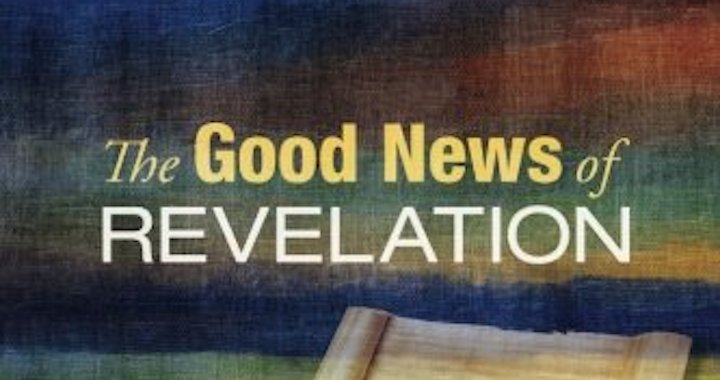Injustice appears to be the main thread running through the news these days.
Systemic racism has been exposed when a police officer, according to all eyewitness accounts, murdered an unarmed African American teenager.
Islamic State militants have killed religious minorities in Iraq and continue to threaten thousands upon thousands of Christians.
Violence could erupt again at any moment in Gaza.
These national and international events are but a cross section of disturbing news in our world that range from persecuted Christians in China to the staggering number of African Americans who are locked up for longer prison sentences than whites.
Who could fault anyone for asking, Where is God in the midst of injustice and persecution?
The writers of scripture give us a compelling answer to this question, but many Christians today–especially Christians in the West–have missed it. That is because the Bible, in part, deals with our questions about God’s place in an unjust world through the book of Revelation—a book that many have tragically (and, at times, comically) misunderstood.
I grew up in a particularly dispiriting world of sensationalism where Revelation’s message was coopted for personal and political gain. Misguided teachers completely misconstrued the Apocalypse, cannibalizing its original message and turning it into a fortune telling text that served their own ends rather than addressing God’s approach to justice and the hope God offers to those who suffer injustice.
So, just to be clear:
- Revelation doesn’t give us details about the rapture or who will be “Left Behind.”
- Revelation has as much to do with Four Blood Moons as Goodnight Moon.
- Revelation barely gives any details about the end times–even if it offers some clues about our perfect ending.
- Revelation doesn’t tell us about hell—even if some have been accused of Erasing Hell.
The sole reason for Revelation’s existence is to encourage people who are suffering injustice.
Revelation may tell us a little about the end times, but that’s only by way of addressing the needs of those suffering persecution. In fact, Revelation may be one of the most relevant books of scripture to help us make sense of what’s happening in the world around us today.
Rather than turning Revelation into a tool for culture warriors and end times speculators, there’s a compelling school of thought that locates most of the events in Revelation in the early first century. John wrote a hybrid of Jewish apocalyptic literature that retold current events through symbols and visions and then predicted the future victory of God. The audiences of apocalyptic literature were often suffering at the hands of a powerful nation and were waiting for God to bring justice. We know that Christians suffered severe persecution at times in the first century, so it’s quite likely that John imitated this relatively well known form of literature for his readers.
If we take the book of Revelation at face value within its literary and historical setting, we can actually read it as a letter to seven specific churches in what is today known as western Turkey. In reality, it’s far less terrifying that we’ve been told. In many ways, Revelation is extremely good news to suffering Christians, and it addresses many of our most pressing questions about evil and justice in the world.
As the readers of Revelation were marginalized, persecuted, and pressured because of their devotion to Christ, they looked around and saw Rome winning on every front. They probably asked many of the same questions we find in the book of Psalms—the questions people are asking in Iraq and Ferguson, MO.
Why do the wicked prosper?
Why is God delaying justice?
Does God care that so many are abused by the powerful?
John didn’t unfold a step-by-step chronology of the future in Revelation. Rather, he created a series of powerful images and scenes to address suffering people’s most pressing questions and concerns. Just as God saw the suffering and injustice brought on by the powers of Rome, Revelation reminds us that God is well aware of the injustices of today’s world and will one day bring a just and peaceful resolution.
In particular, the scene in the throne room in Revelation 4 displayed the power of God and reminded its first readers that Rome’s triumph was only temporary. The scenes depicting the fall of Babylon spoke, in part to the eventual destruction of Rome, though Babylon could stand for a variety of empires.
The vision of the dragon attacking the child born to the woman and then pursuing a woman into the wilderness symbolized the conflict between Christ and Satan.
The plagues and bowls of wrath depicted the struggle between good and evil in the world, in particular the ways that creation has been corrupted.
The final judgment scene isn’t necessarily a play-by-play account of the end times. Rather, it functions as a reminder that God will judge the wicked and reward the righteous. In the midst of evangelicalism’s focus on personal salvation, we’ve forgotten that God’s judgment in Revelation has a great deal to say about ending unjust systems and restoring the world to its intended state.
These images may not provide all of the answers we’ve been looking for. But maybe they can help us ask new and better questions. If Revelation isn’t about God rapturing the true believers or identifying the Anti-Christ so we can know when the end is near, then it compels us to always ask again where the powers of the anti-Christ are all around us. That power is already on full display whenever there’s oppression, injustice, and persecution.
The point of Revelation isn’t who gets to escape. The point is who will bring true justice and redemption.

